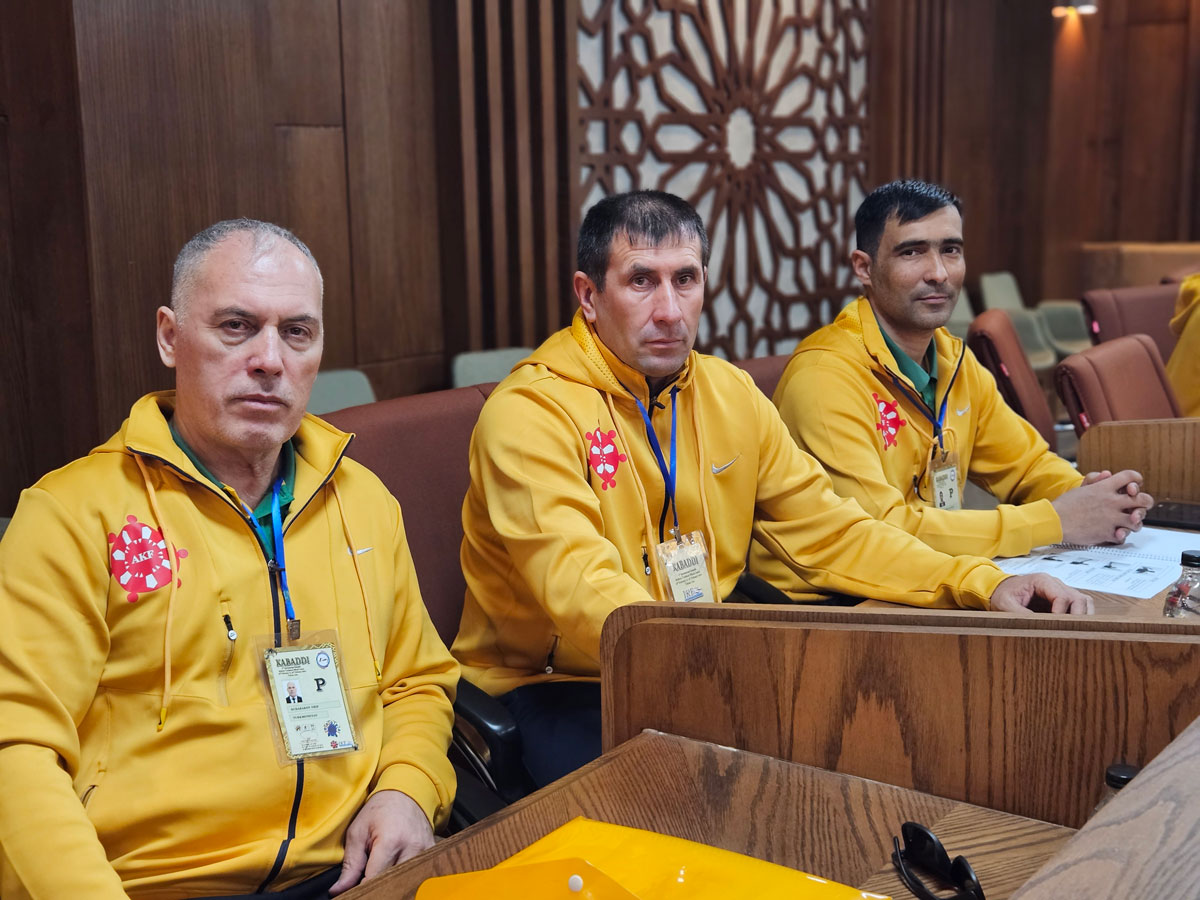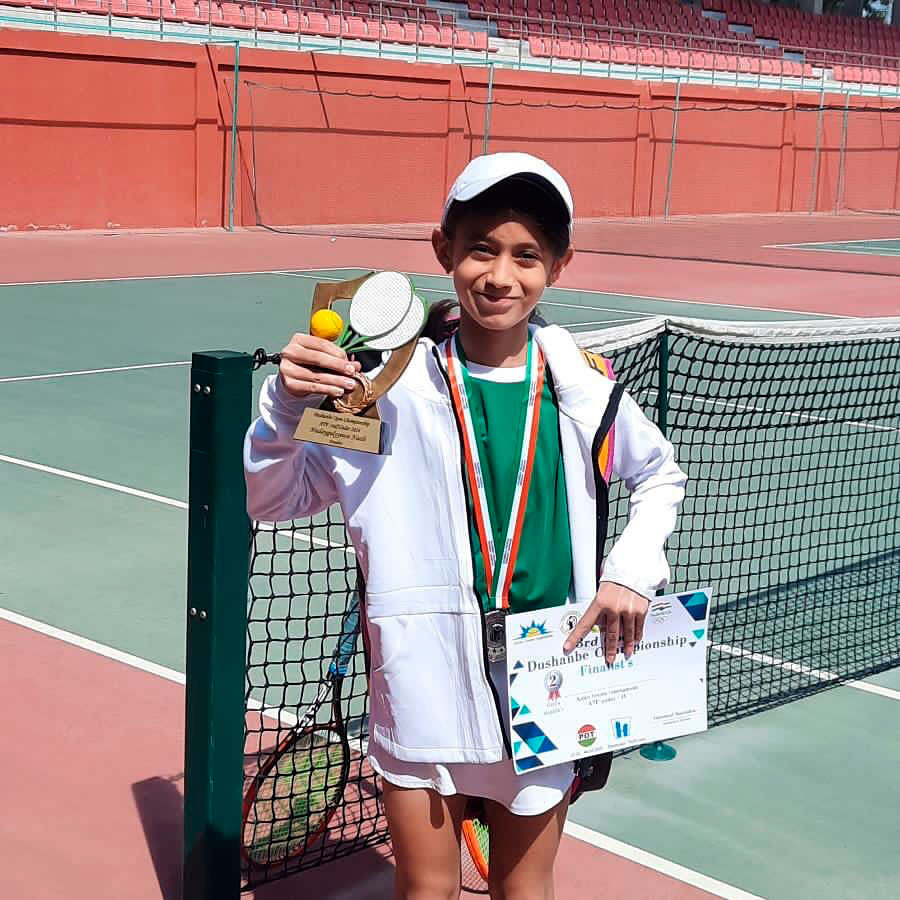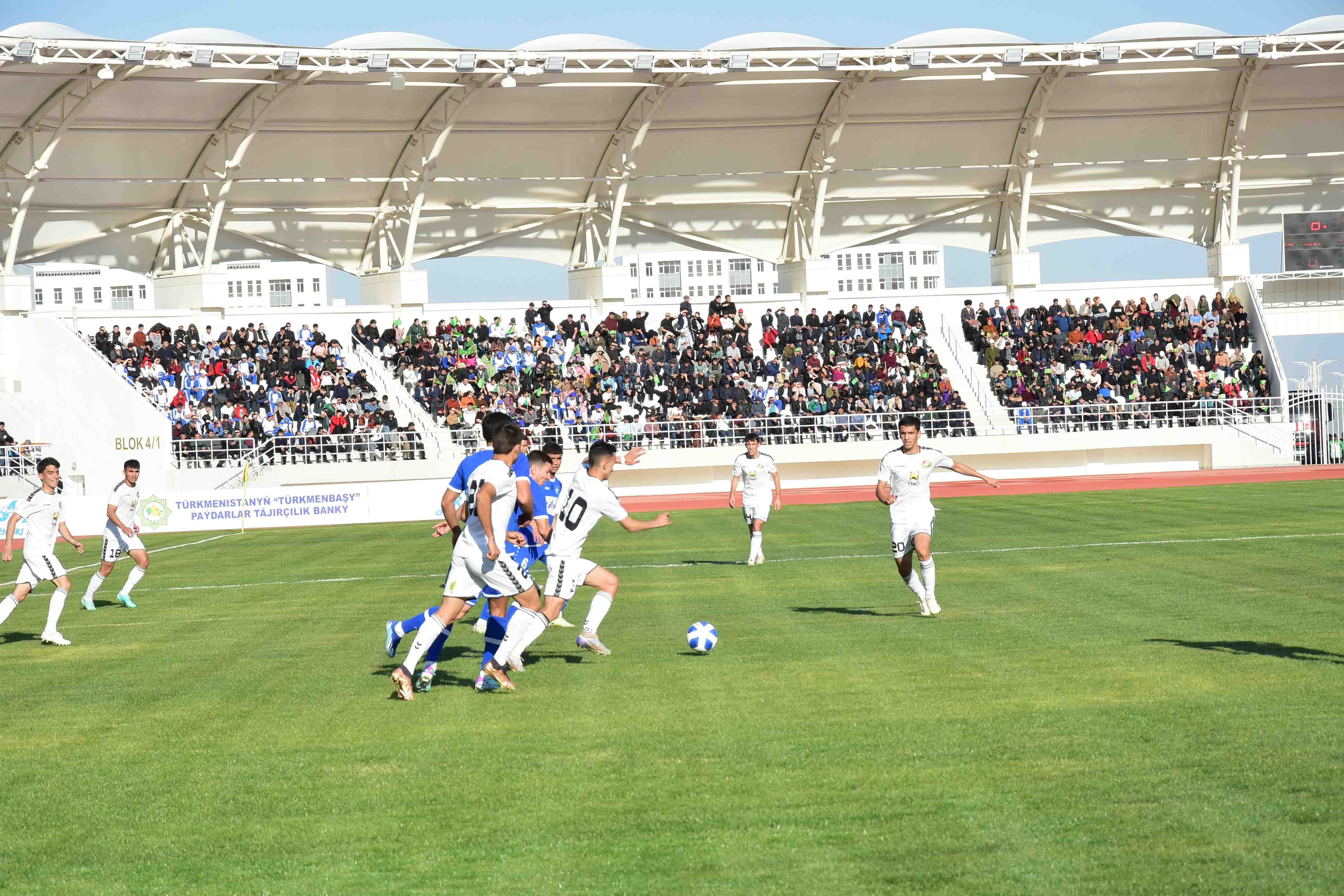An international refereeing seminar on the popular Asian game of kabaddi, which brought together over 80 specialists from 16 countries, including Turkmenistan, ended in Tehran. It was organized by the Asian Kabaddi Federation (AKF), which unites national associations from more than 30 countries.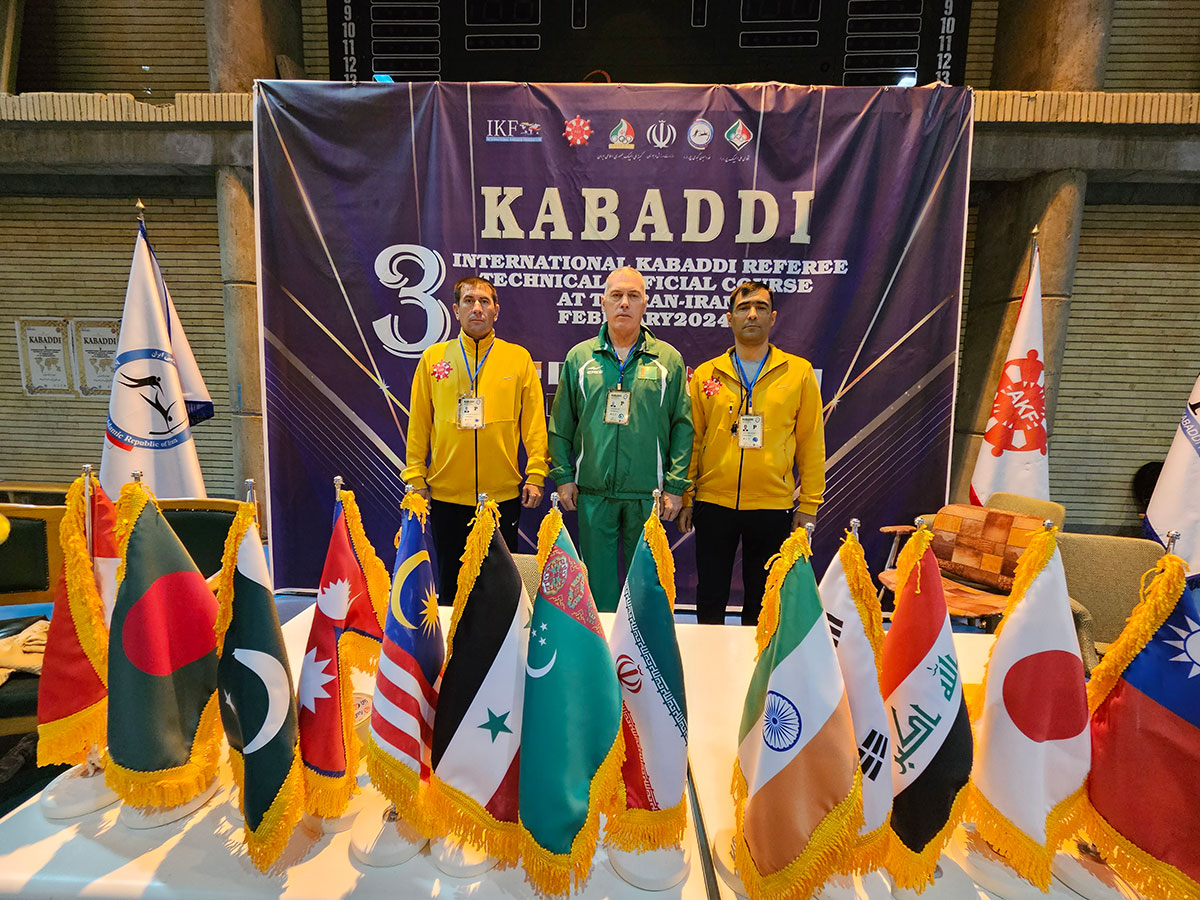
Our country was represented at the forum by an international judge, chairman of the «Hanmudo» Martial Arts Federation of Turkmenistan (includes several sports, including kabaddi) Orif Buharakov, the general secretary of this organization Guvanch Gulgeldiyev and the representative of the Mary velayat federation Nagmat Hojamammedov.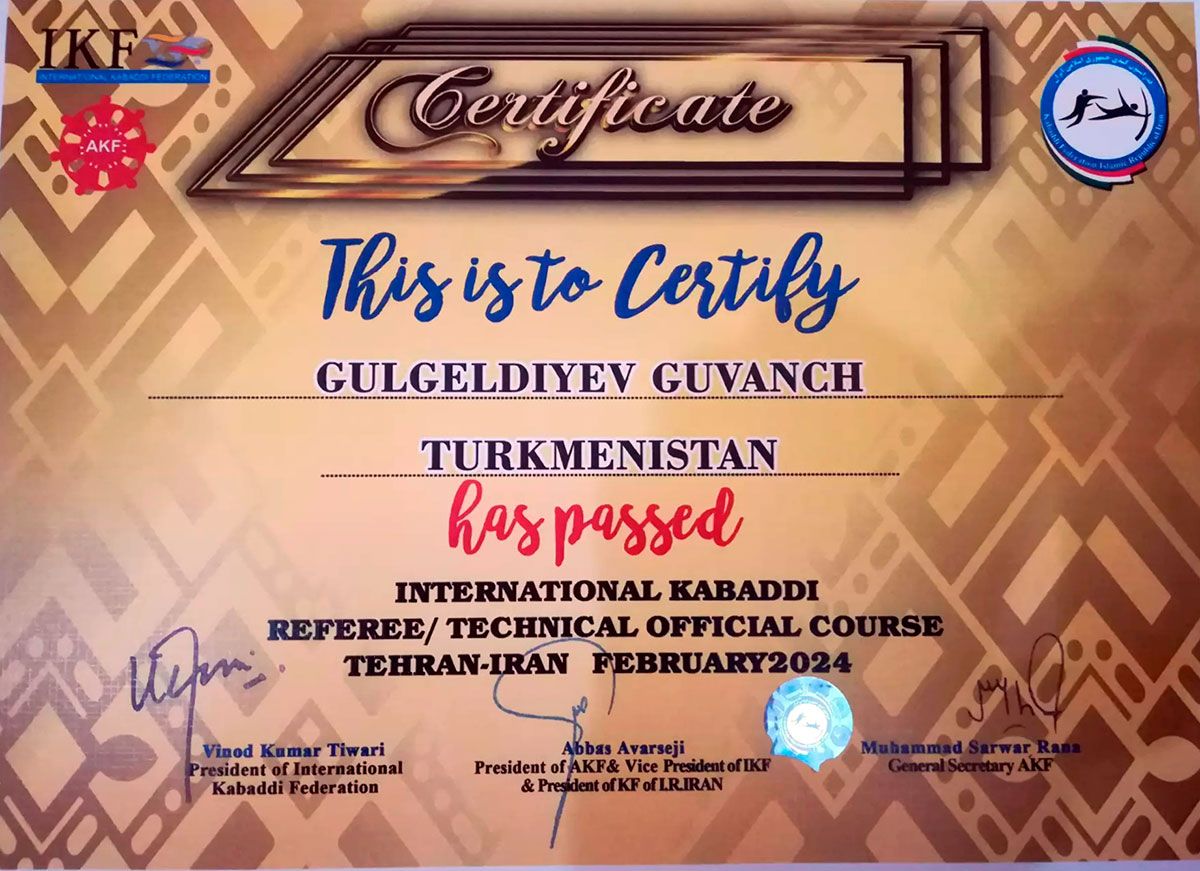
Over the course of three days, the seminar participants attended an educational course on the rules and other aspects of the game of kabaddi and took part in practical exercises to improve refereeing. After successfully passing the exam on the final day of the seminar, representatives of Turkmenistan received certificates giving them the right to judge any international competition in four types of kabaddi - traditional (7x7), included in the program of the Summer Asian Games, beach (4x4), included in the program of the Beach Asian Games, kabaddi ( 5x5), part of the Asian Indoor Games and Martial Arts and Kabaddi (circular style), played by teams of 10 players.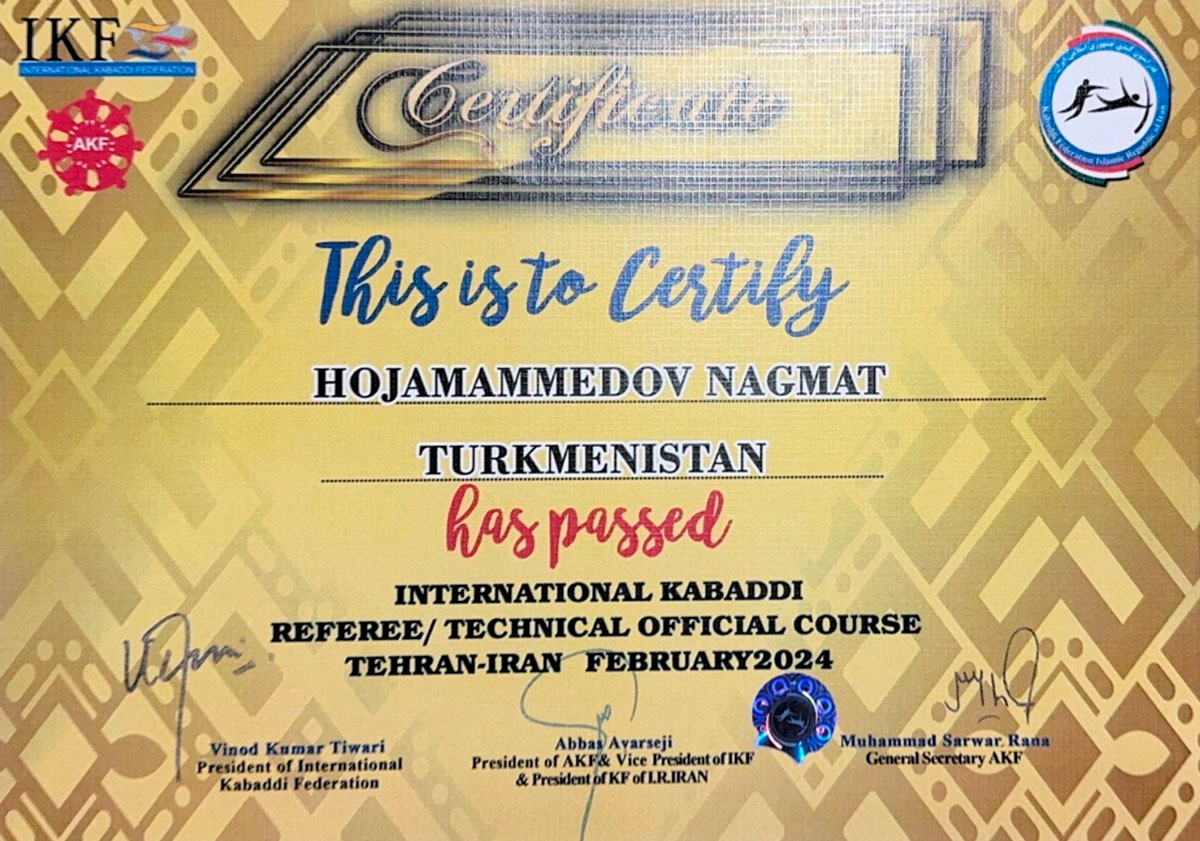
Kabaddi is the oldest and most popular team game in Asia, which includes elements of wrestling and tag. Its origin is India. The first game at the international level was held in Dhaka in 1985. In 1990, kabaddi among men's teams was included in the program of the Asian Games in Beijing. Since then, this game has been a regular sport at the Asian Games.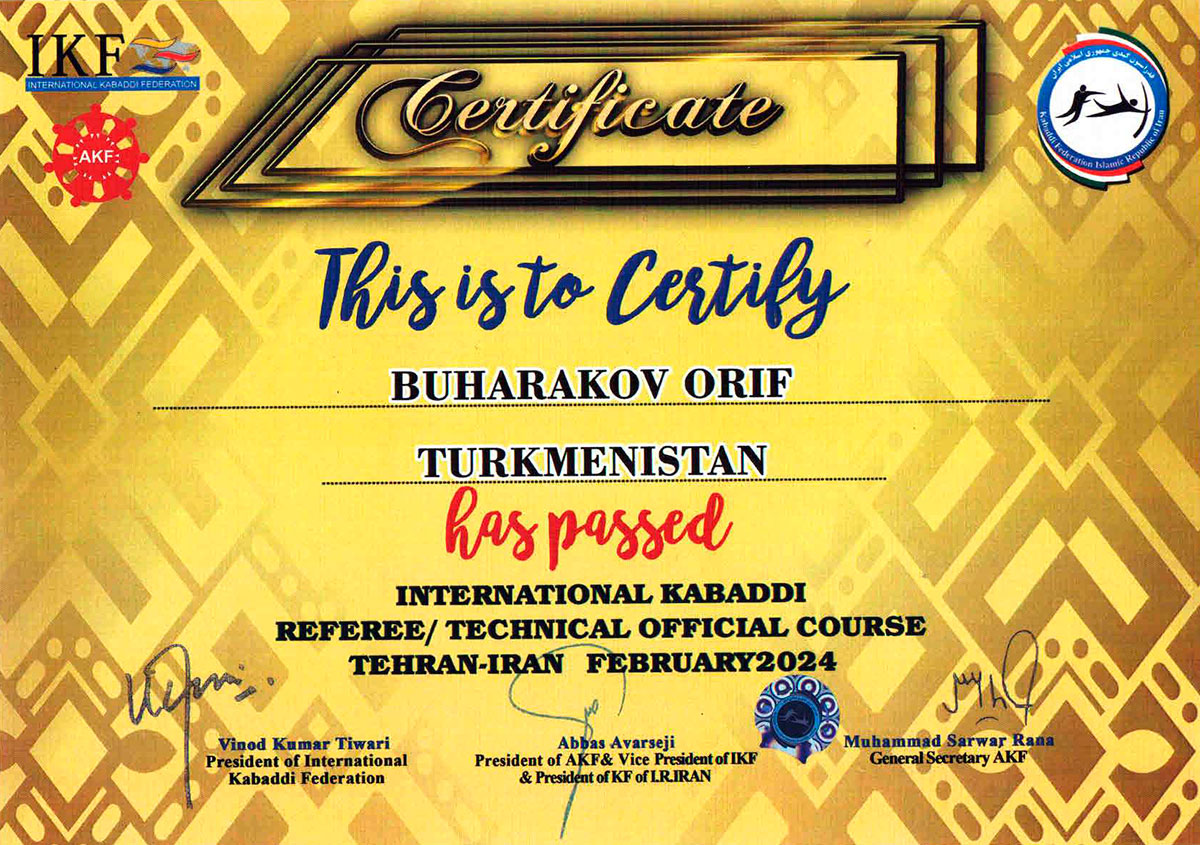
The first women's kabaddi competition took place at the Guangzhou International Competition in 2010. At the Asian Games, competitions among women's teams also began to be held in 2010. World Kabaddi Championships have been held since 2004.
According to the rules of the game of kabaddi, two teams occupy two opposite sides of a playing field measuring 13 m x 10 m, divided in the middle by a line. The game begins with one team sending an «invader» to the dividing line, who at the right moment runs into the other team’s territory. There he continuously shouts: «Kabaddi! Kabaddi!» But he can stay on opponent’s territory for no more than 30 seconds only as long as he can scream without taking a breath. His task - while he is shouting - is to touch the opponent player with his hand or foot and run away to his territory.
If he needs to catch his breath, he must run, since the team he is on has the right to tackle him. He will be able to free himself if he can stretch his arm or leg across the dividing line. The opposing team must force him to do one of two things: either touch the ground or take a breath (take a breath). After the forward player successfully returns, the player of the other team who was touched by him is eliminated from the game. If the attacker is captured, one of the defending team members becomes the attacker. The game continues until one of the teams loses all its participants.
In Turkmenistan, the Indian team game of kabaddi developed in 1997 after the registration of the national Martial Arts Federation «Hanmudo» with the Ministry of Adalat, which promotes not only Korean styles, but also other types, including universal combat, MMA «Fighting», pencak silat, hand-to-hand combat and army hand-to-hand combat, as well as kabaddi.
Currently, this game is cultivated in all velayats of the country. Kabaddi coaches work in sports schools in Balkan and Dashoguz velayats. In other regions of the country, this sport is developed by public trainers with the support of the «Hanmudo» Martial Arts Federation of Turkmenistan.
Turkmenistan teams have repeatedly participated in the Asian and World Kabaddi Championships, and in 2014 they made their debut at the Summer Asian Games in Incheon (Republic of Korea) among men and women.




